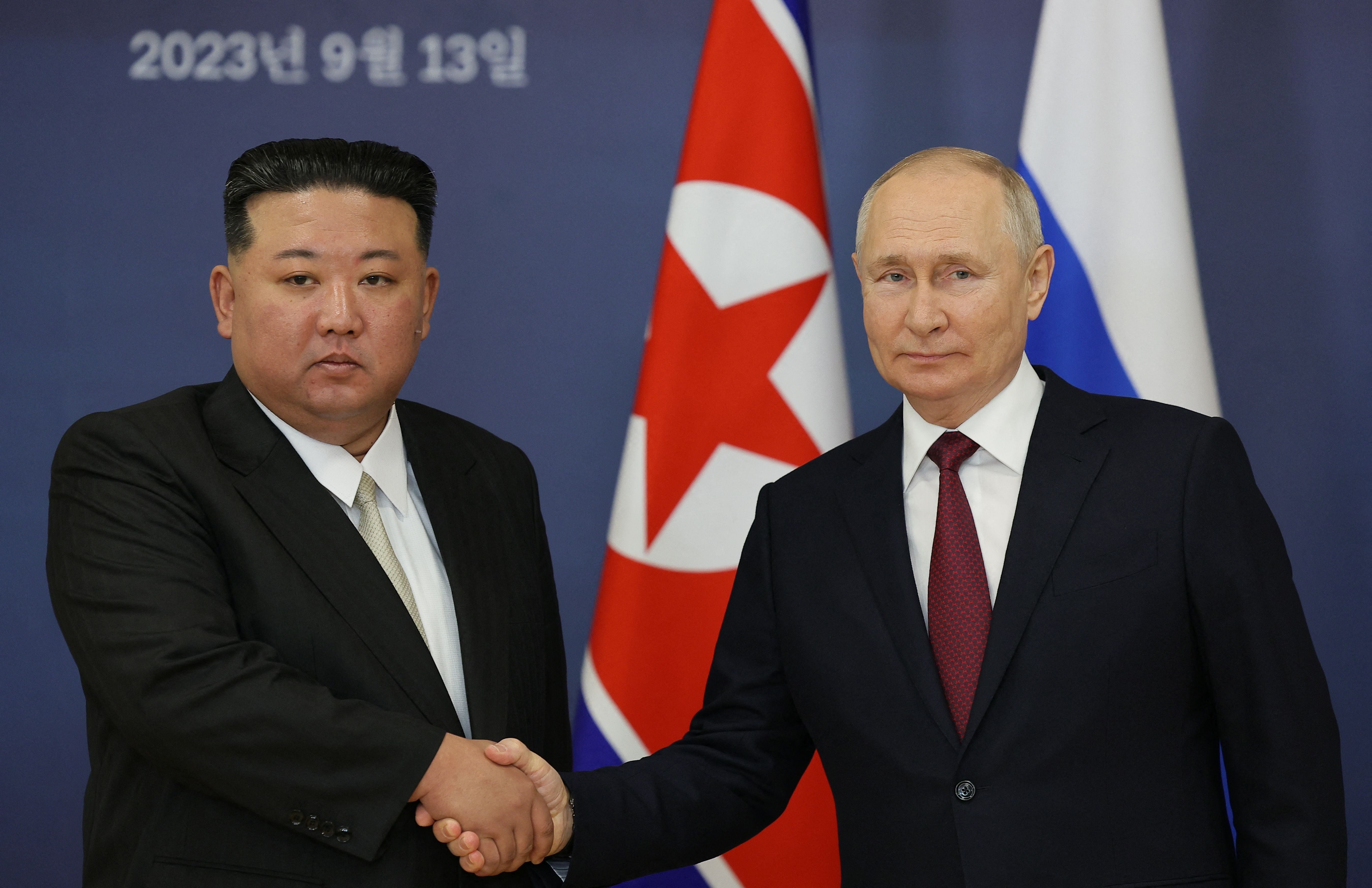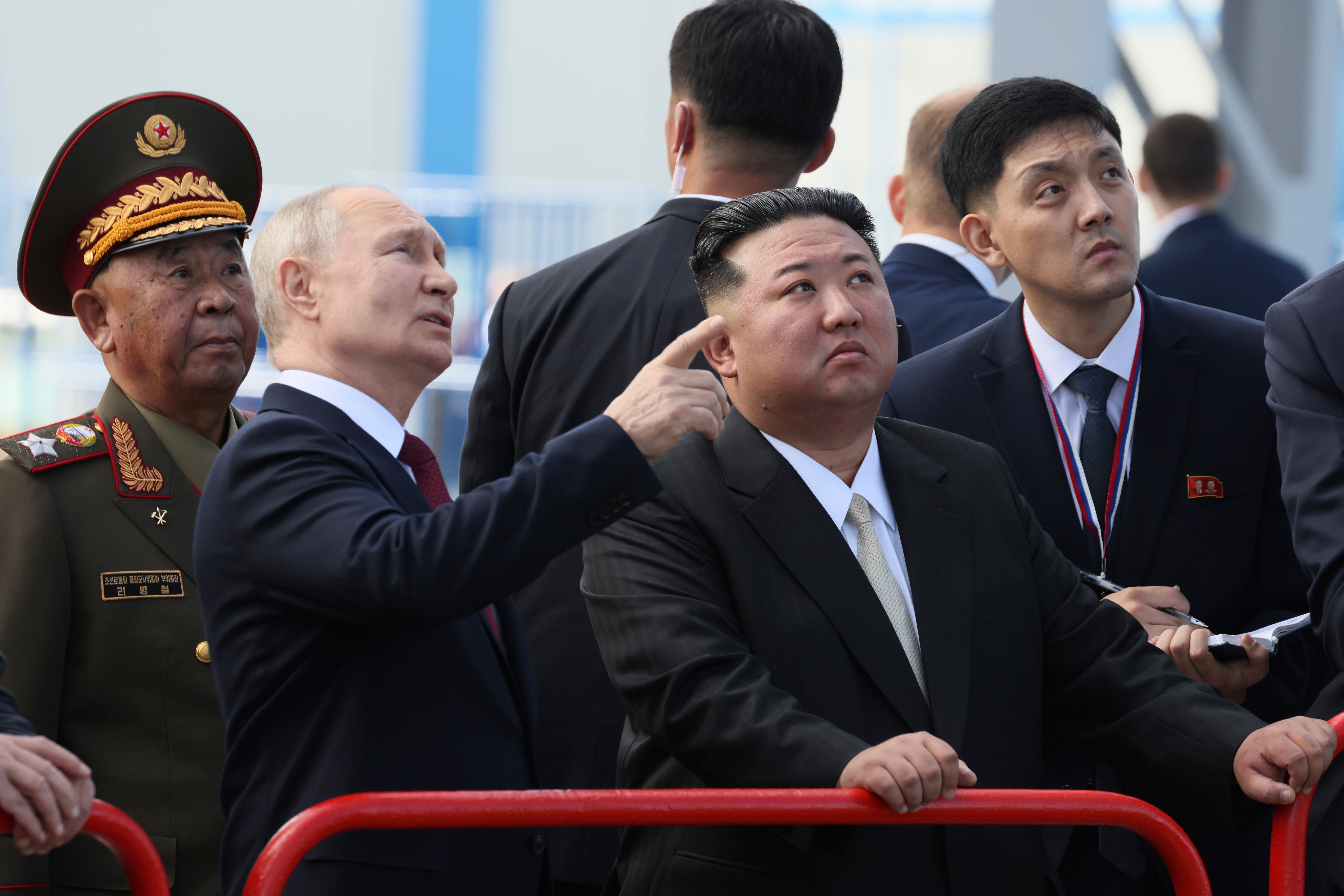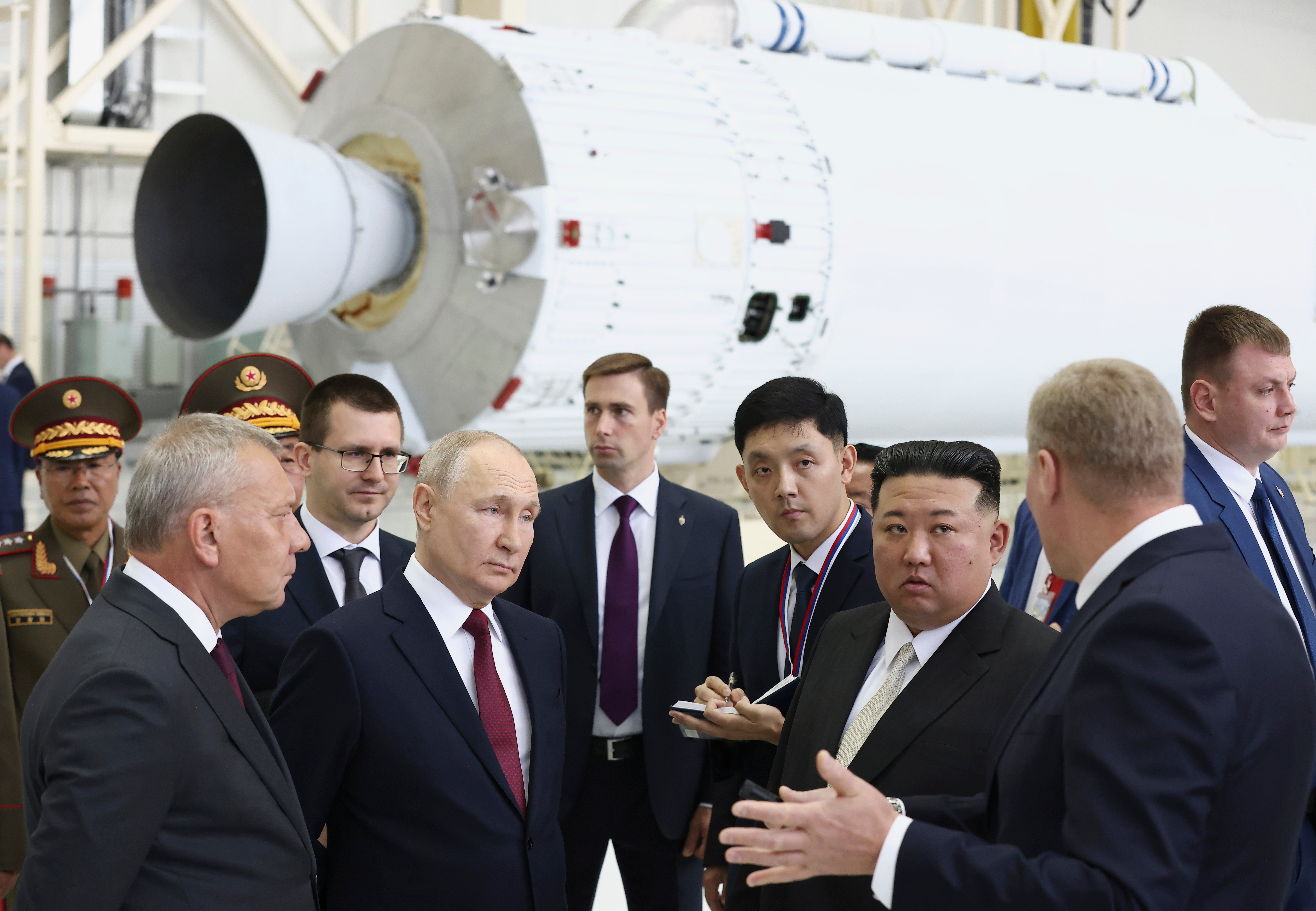Weapons, spy satellites and nuclear ambitions: what we learnt from Putin’s summit with Kim Jong-un in Russia
The rare face-to-face meeting between the Russian leader and his North Korean counterpart will leave Ukraine and its Western allies with much to ponder, writes Chris Stevenson


The Kremlin has said that Vladimir Putin and Kim Jong-un held "important talks" at the remote Russian Vostochny Cosmodrome. Discussions lasted several hours, both with their ministers and then one-on-one, followed by an opulent lunch of Russian "pelmeni" dumplings made with Kamchatka crab and then sturgeon with mushrooms and potatoes.
So what are the main things we should takeaway from this rare meeting between the two leaders?
Ammunition
The one thing of what Putin wants out out of this visit, however obliquely the pair would end up talking about the possibility during their public comments about their meeting. Moscow's forces are grinding through thousands of artillery shells a week during their invasion of Ukraine. Pyongyang has vast stocks of such munitions, as well as anti-tank missiles and other weapons, all copies of Soviet designs.
It shows just how desperate Putin is about the state of Moscow's supplies of ammunition, with domestic production seemingly unable to keep with the number of artillery shells required in particular as Kyiv pushes on with its counteroffensive.
Speaking later on Wednesday, Putin said the pair discussed "possibilities" for military cooperation and that the North Korean leader would continue his visit in Russia by heading to the far east cities of Vladivostok and Komsomolsk-on-Amur. Workers were seen constructing a temporary wooden platform at a railway station in Komsomolsk-on-Amur, where Putin said Kim planned to tour an aircraft plant. Putin claimed that Russia would comply with international rules, but that there were opportunities to explore. Given the sanctions on both nations it would be difficult for a deal to be done that did not cross the line.

Officials in the delegations included defence ministers of each nation, as well as North Korean military officers and officials from the country's weapon's industry. That was a clear signal, even if both leaders merely dropped hints about cooperation. On Wednesday, the UK urged Kim not to sell weapons and ammunition to Putin, echoing warnings from the US last week that Pyongyang would "pay the price" for such a move.
The Russian foreign minister, Sergei Lavrov, will visit Pyongyang for more talks next month, the Kremlin said.
Nuclear ambitions
Putin said that he and Kim did not discuss the nuclear threats to both nations, but given the group of military officials Kim chose for the trip – including the top commander of his navy, Admiral Kim Myong Sik – it is obvious that Kim will be after technologies related to missiles and nuclear-capable submarines as part of any exchange. But it remains unclear whether Russia would be willing to share such sensitive technologies for what could easily end up being a limited amount of North Korean ammunition slowly delivered through the small land link between the countries.
Kim attended a ceremony last week at a military shipyard in eastern North Korea, where the country unveiled a purported nuclear attack submarine that it said could launch tactical nuclear weapons from underwater. However, South Korea's military expressed doubt the submarine, which was the result of reshaping an existing submarine to install 10 launch tubes, could actually be operational.
Spy satellites
This was the area Putin and Kim were most open about. Starting with the location, the Vostochny Cosmodrome, which was symbolic of what Kim was probably most interested in. The Russian president was happy to show Kim around his country's most advanced space rocket launch site and discussed the possibility of sending a North Korean cosmonaut into space. Kim is asked detailed questions about rockets.

North Korea has experienced repeated failures in recent months to put its first military spy satellite into orbit, but Kim has vowed to make a third try for the spy satellite in October. The North Korean delegation in Russia included Pak Thae Song, chairman of the country's space science and technology committee that handles the spy satellite project and would probably be after help from Russia to make sure its satellites conduct military reconnaissance from space. Pyongyang has claimed its new satellite can do this, but after retrieving and studying the wreckage following North Korea's first launch failure in May, South Korea's military concluded the device wasn't advanced enough.
Space-based spying capabilities would potentially enhance the threat posed by Kim's missiles, aiding efforts to develop more powerful intercontinental ballistic missiles that are designed to reach the US mainland. That is due to the fact that space-launch rockets share the same core technologies with ICBM weapons.
Asked whether Russia would help North Korea build satellites, Putin was quoted by Russian state media as saying "That's why we have come here. [Kim] shows keen interest in rocket technology. They're trying to develop space, too."
Kim told Putin he was "honored to be given the opportunity to engage in a conference at a space launch facility and gain deeper understanding of the current state and future of a space power nation."
Bombastic language
Kim in particular seemed to want to talk up Putin's achievements and said that relations with Russia are now North Korea's "number one" foreign policy priority. Perhaps mindful that he will want food supplies and monetary aid for his nation past any short-term arms deal, the language was florid.
Kim raised a toast with a glass of Russian wine to Putin's health at the state lunch following their talks, praising the Korean-Russian friendship and predicting Moscow would win its "sacred fight" with the West in the Ukraine war.
"I firmly believe that the heroic Russian army and people will brilliantly inherit their victories and traditions and vigorously demonstrate their noble dignity and honour on the two fronts of military operations and building a powerful nation," Kim told Putin.
"The Russian army and people will certainly win a great victory in the sacred struggle for the punishment of a great evil that claims hegemony and feeds an expansionist illusion," Kim added.
Putin may be desperate to get hold of Pyongyang's weapons stories, but Kim is also clearly happy to keep Putin onside for the long term.
Join our commenting forum
Join thought-provoking conversations, follow other Independent readers and see their replies
Comments
Bookmark popover
Removed from bookmarks